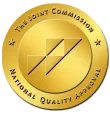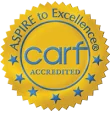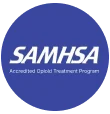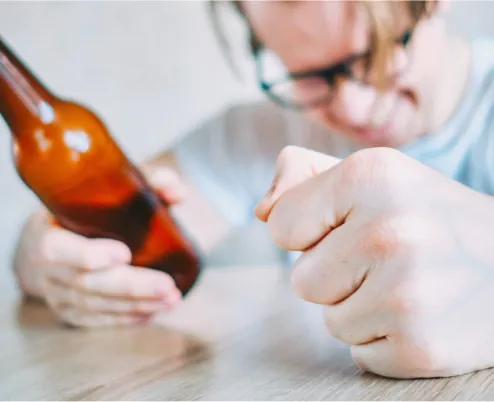TOGETHER WE LEVEL UP
We Level Up Lake Worth Drug and Alcohol Addiction Treatment Center
Reclaiming Lives, Embracing Sobriety: Top-Rated Drug Alcohol Rehab

Licensed & Accredited Substance Abuse Treatment Program
*Level Up Treatment Lake Worth referred to as We Level Up Lake Worth FL
Recognized as one of the best addiction treatment facilities in the country, we are focused on providing the highest standard of substance abuse treatment. We continue to meet the rigorous standards that are set forth by the Joint Commission (JCAHO) and have received their Gold Seal accreditation as an addiction rehab center.
Welcome to We Level Up Lake Worth Addiction Treatment Center
We offer quality, effective addiction treatment to individuals who want to overcome their addiction to alcohol and other drugs. Our treatment residence is located in a serene beachside community in South Florida. We serve many local communities like Fort Lauderdale, Miami, the Palm Beaches, and other Florida areas. In fact, many of our clients seeking the best alcohol and other drug addiction treatment come from around the United States. If you or a loved one are dealing with addiction to alcohol or other drugs, and especially if you have experienced multiple relapses in the past, then look no further. At Level Up Treatment Lake Worth, we offer one of the most comprehensive, best drug rehab programs available in America.
Level Up Treatment Lake Worth is a multi-faceted drug & alcohol treatment center in Florida that uses a repertoire of methods to generate practical solutions to major drug/alcohol challenges targeted towards families and individuals. We work to improve the health of the public and of individuals from a variety of angles. This includes constant research and innovation on substance abuse treatment models as paired with individuals and a conducive environment.
Addiction Treatment in Lake Worth
- Local Concern: Addiction is a significant issue in Lake Worth, Florida, with a notable impact on the community’s well-being.
- Treatment Accessibility: Many Lake Worth residents face challenges in accessing quality addiction treatment services despite local efforts and state funding to expand access.
- Community Support: Lake Worth benefits from a strong network of community organizations and support groups that actively assist individuals in their recovery journey.
Our Commitment
At We Level Up, we are deeply committed to addressing addiction in Lake Worth, Florida, and the USA. Our programs are designed to provide personalized support and evidence-based treatment to help individuals overcome addiction and achieve lasting recovery.
Join Us
Whether you’re a Lake Worth resident, from any part of the USA, or beyond, we welcome you to join us at We Level Up. Together, we can work towards a healthier, addiction-free life. Reach out today, and let us be your partners on the path to recovery. Your well-being is our top priority.
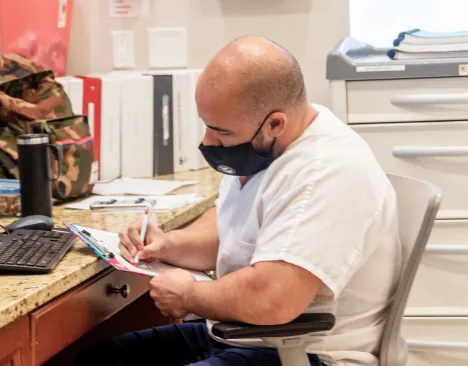

Empowering Tools for Resilience and Recovery in Challenging Times
In addition to our comprehensive treatment programs, we offer a range of simple yet effective resources to support your journey to recovery.

Intervention Services
An intervention is an organized confrontation with a loved one about their drug or alcohol addiction.

Social Support for Recovery
Social support is one of the most crucial components of the addiction recovery journey.
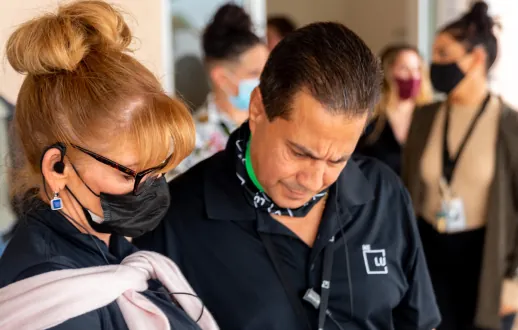
Relapse Prevention After Treatment
Addiction can be challenging to manage – and with anything that’s difficult to do, sometimes there are setbacks.
Backed by a Team with a History of Excellence
Coupled with our rich history of excellence, we are dedicated to assisting individuals on their path to recovery from substance abuse, both in Florida and beyond. With over a decade of experience, our team is committed to providing top-notch care and support tailored to the unique needs of our clients, regardless of their location.

15+
Years of Unified Experience
100s
5-Star Reviews Across Our Centers
10K+
Recovery Success Stories Across Our Network
We Level Up Admission Process
From Your First Call to Our Doors in As Little As 24 Hours.
01
Pre-Admission Assement
Upon reaching out to our Florida addiction treatment center, you’ll be assigned an admissions coordinator who will complete a 15-30-minute evaluation of your or your loved one’s medical, mental health & substance abuse history.
02
Insurance Check
While on the phone, we will collect relevant information to determine whether your health insurance can be accepted. In most cases, the answer will be positive, as our addiction treatment centers in Florida work with the most major providers.
03
Exploring Your Payment Options
If your insurance isn’t accepted or you prefer different payment methods, don’t worry. We’ll present you with a range of alternative options, ensuring you find a solution that fits your needs.
04
Dedicated Treatment Consultant
Once all the details are worked out, you will be assigned a dedicated treatment consultant. They will ensure smooth coordination with the facility and treatment staff, providing you with a tailored and seamless experience.
05
Arrival and Transportation
If you are arriving from out of town, we can arrange for your pickup and safe transfer to the facility.
06
Start of Your Recovery
As soon as you have arrived, We Level Up staff will greet you and finalize the admissions process, giving you a chance to start working towards an improved, healthier you.
What Our Clients Are Saying
Read All ReviewsTestimonials from the We Level Up Treatment Center network do not guarantee you the same outcome of treatment. Each person’s journey is unique and results may vary.
First-class Lake Worth Rehab Facilities
Located in the serene surroundings of Palm Beach County, Florida, our Lake Worth drug and alcohol rehabilitation facility is a haven for those seeking recovery. With 60 beds, we specialize in drug and alcohol medical detox and residential treatment. Set in an idyllic location within a comfortable driving distance to more than half of the nation’s population, our facility offers an exclusive and private atmosphere that many consider to be the perfect backdrop for intensive personal addiction recovery.
- Caring & Compassionate Substance Abuse Therapists
- Innovative Cutting-edge Science-Based Addiction Treatment Modalities
- Licensed & Trained High-Quality Team of Addiction Specialists
- Exclusive & Private grounds with Low Staff-to-Client Ratio
- Multiple Mindfulness & Wellness Therapies
- Up-to-Date, Safe, Comfortable & Stylish Accommodations
- World-Class Food & Nutrition Hospitality
Contact Us Today

About We Level Up Lake Worth Rehab for Addiction Treatment
Our mission is to provide you with a map back to your fullest, most authentic potential so you can choose a dream life without limitations.
Freedom
Exercising the power of choice to stay true to yourself.
Community
When you take part in a group with a vision bigger than yourself, you can overcome any obstacle.
Accountability
No matter what life throws at you, you show up and find a solution.
Acceptance
Commit to self-love and trust that you are exactly where you are meant to be.

FAQ
We understand that you and your family may be going through a challenging period.
The process of comprehending the treatment options for alcoholism, drug addiction, and mental health conditions that we address can be quite complex, and it may raise numerous questions.
How can I find a trustworthy addiction treatment center in Florida?
To discover a dependable rehab center in Florida, start with us at We Level Up Lake Worth, where we provide a full array of services for those dealing with substance abuse. Our renowned facility lays a strong recovery foundation in a caring setting, ensuring effective addiction care in the heart of Florida.
Is it advisable to detox at home?
Detoxifying at home carries significant risks, especially for individuals with serious addiction issues. At We Level Up Lake Worth, we offer a medically supervised detox program in a safe and supportive setting, staffed by healthcare professionals around the clock to manage withdrawal symptoms efficiently.
What makes your rehab facilities in Florida unique?
- Personalized Recovery Journey: Offering individualized treatment plans that cater specifically to each client’s needs, ensuring a personalized path to sobriety.
- Holistic Approach: Integrating dual diagnosis treatment for a comprehensive approach to recovery, addressing both addiction and underlying mental health issues.
- Supportive Environment: Creating a nurturing atmosphere that supports each client’s recovery journey, with a focus on fostering growth and healing.
- Dedicated Team: Our staff’s commitment to each client’s success, providing support and guidance every step of the way.
What environment can clients expect at your Lake Worth rehab center?
Clients at our rehab center in Lake Worth, FL, will find themselves in a calm and healing space, ideal for recovery. With comfortable living areas and serene outdoor spaces, our center is designed to encourage reflection and personal growth.
What amenities and activities do you offer to aid in recovery?
We champion holistic healing and provide a range of amenities and activities, such as fitness centers and yoga classes, to bolster physical and mental health. These offerings are integral to our comprehensive strategy for rebuilding lives.
How do you personalize treatment for each client at your Lake Worth facility?
At We Level Up Lake Worth, personalization is at the heart of our approach. We begin with a thorough assessment to design a custom treatment plan, including detox, therapy, and dual diagnosis support, tailored to meet the unique needs of each client for a more effective recovery.
What types of therapy and treatment programs do you offer?
Our drug rehab in Lake Worth, Florida, utilizes evidence-based therapies and innovative programs to tackle both addiction and its root causes. Our blend of cognitive-behavioral therapy, support groups, and family therapy is designed to support enduring sobriety and personal growth.
What if I don’t have insurance but need addiction treatment?
We are committed to ensuring that everyone has access to addiction treatment, regardless of insurance coverage. We accept a wide range of insurance plans and also provide alternative payment options and assistance to make sure you get the support you need.
Take the First Step to Change Your Life Today
We accept most major health insurances and will help you look into what options are available to you. Contact us for free insurance verification.
Hotline: (855) 459-2880Latest News
See All Blogs
